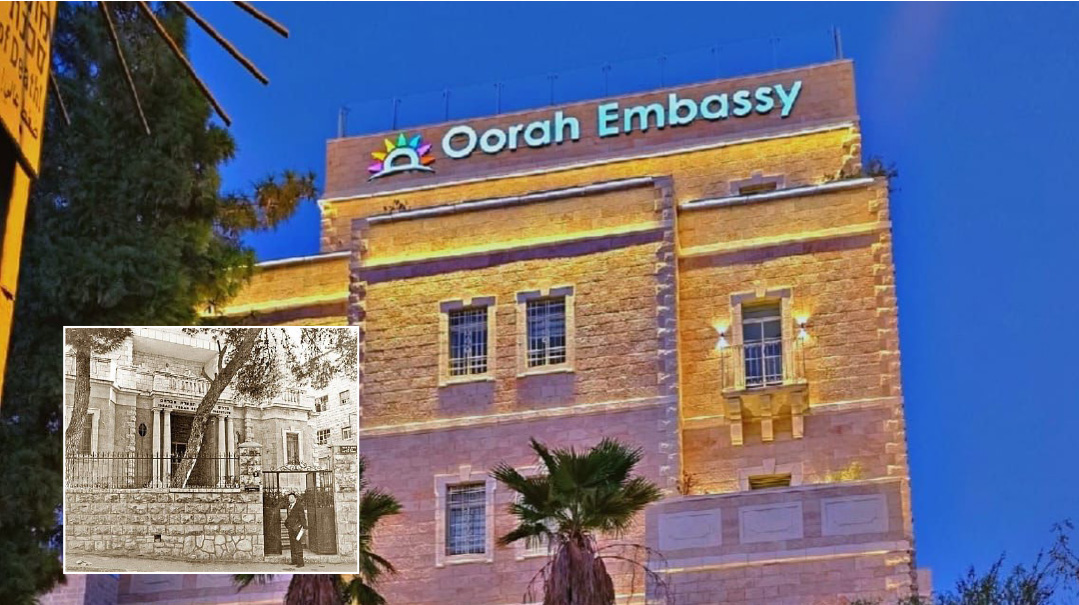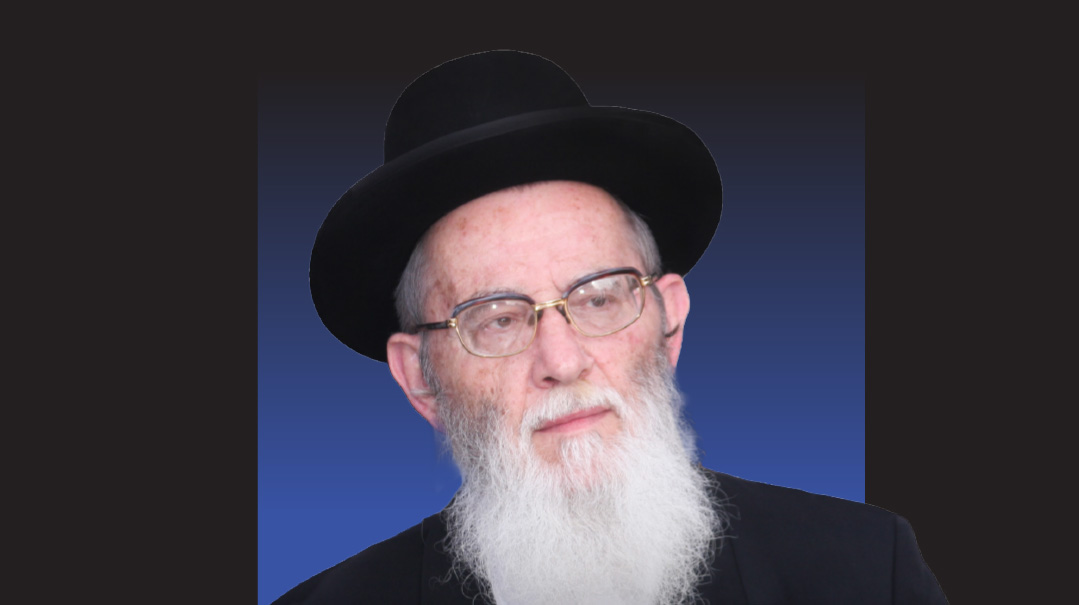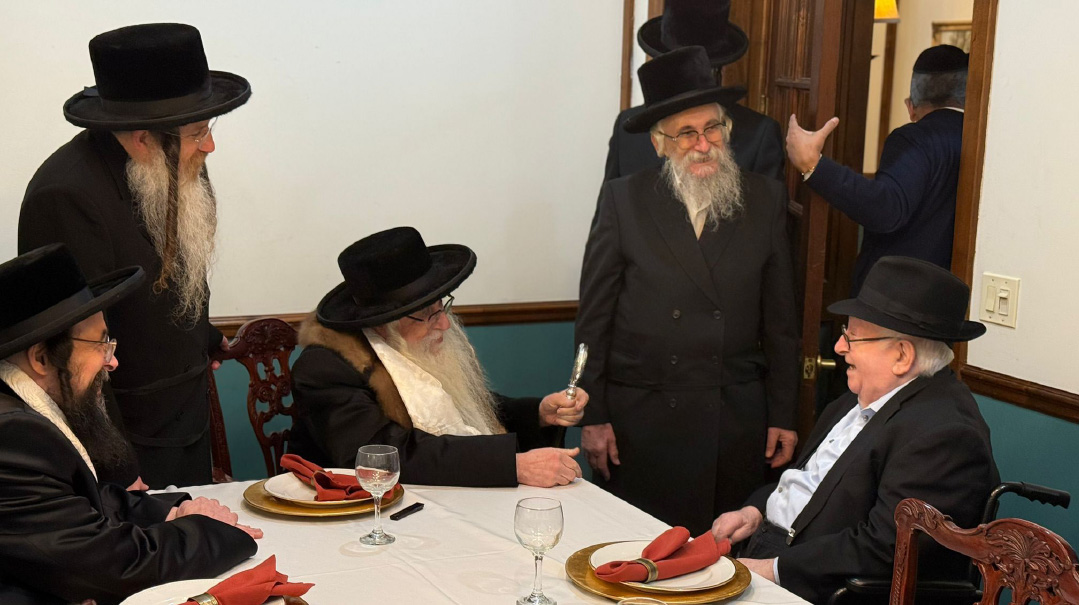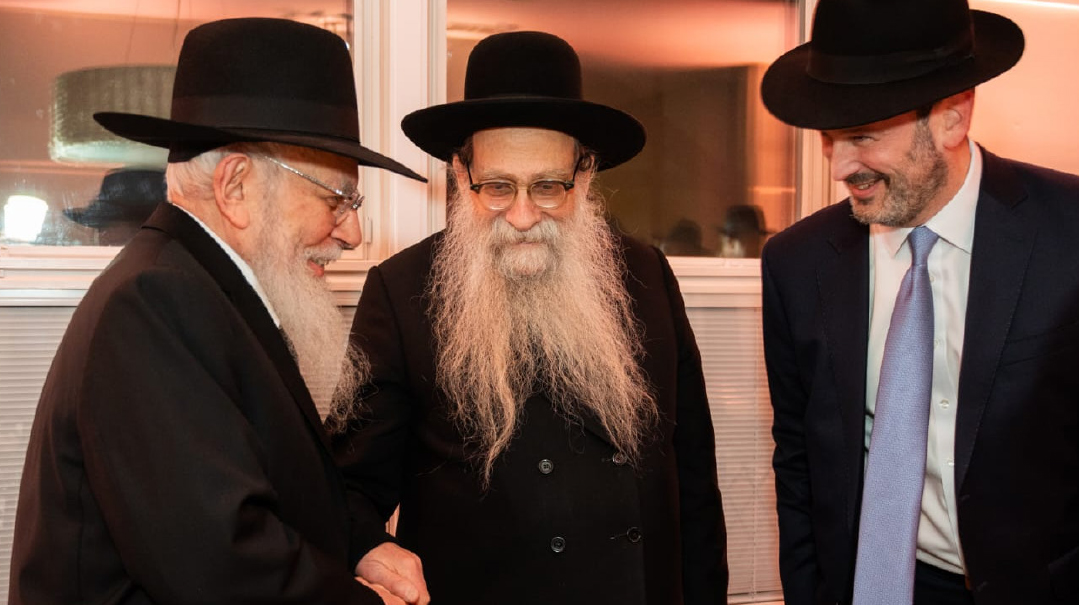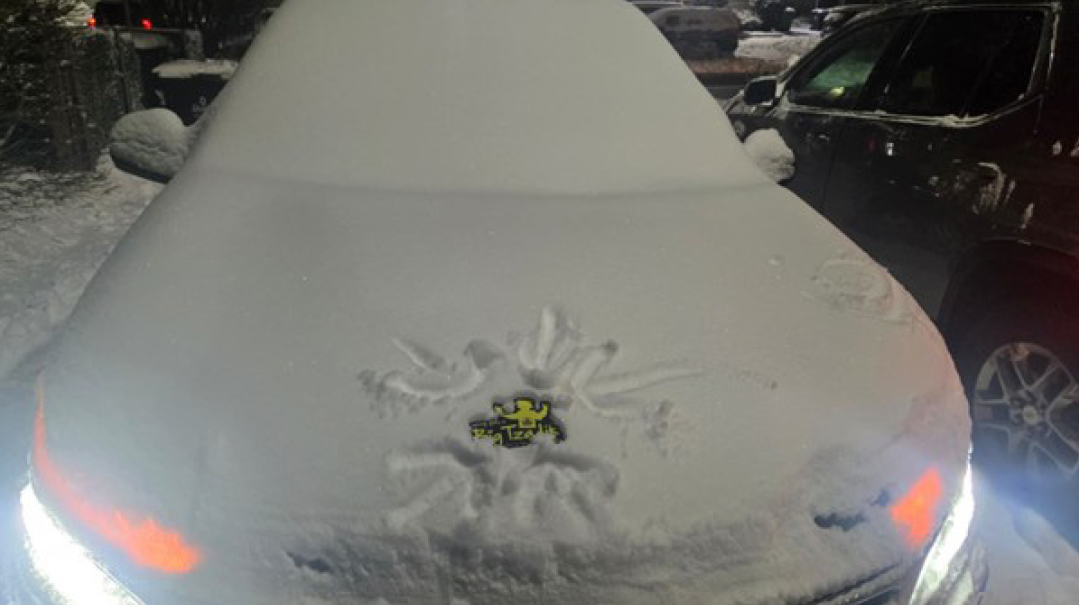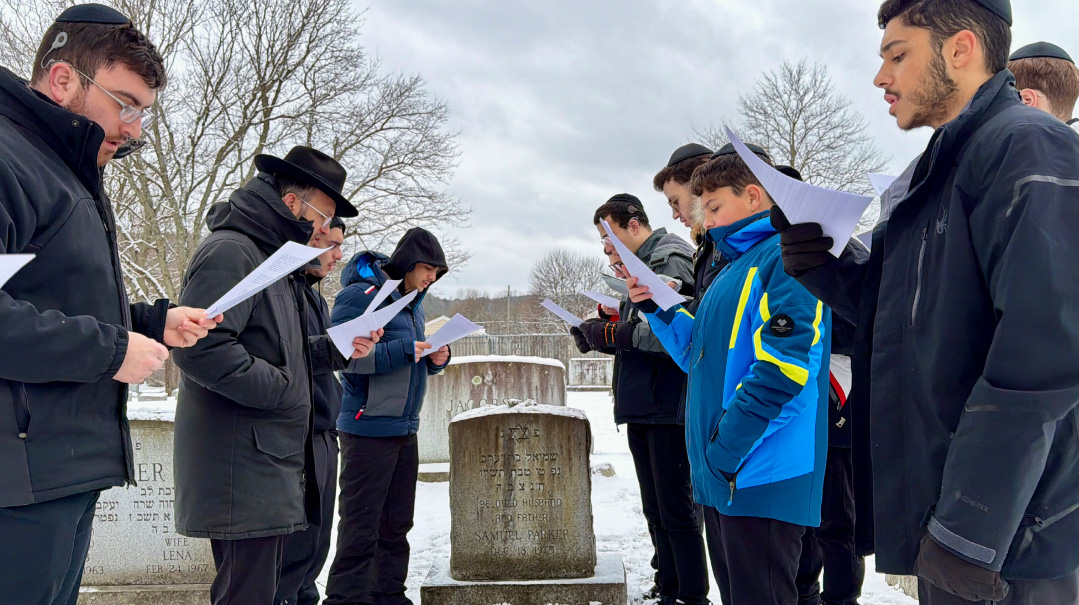The Moment: Issue 1043
| January 1, 2025Rabbi Trenk’s house isn’t just “the Rabbi’s home.” His home has become a celebrated bastion of hachnassas orchim
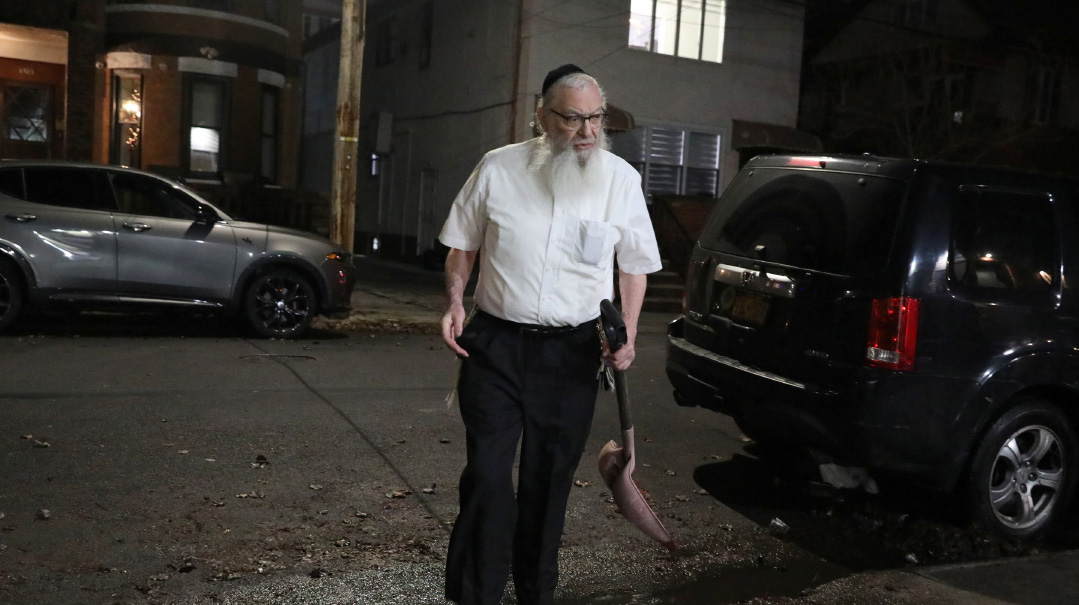
ON the fifth night of Chanukah, photographer Avraham Elbaz arrived at the Flatbush home of Rav Zevi Trenk, the menahel at Yeshiva Darchei Torah in Far Rockaway, New York. Elbaz was hoping to get a shot of Rabbi Trenk as he kindled the menorah lights, but as he alighted from his car, he was in for a surprise — the ebullient Rabbi Trenk was standing outside of his house with a broom and shovel in hand.
Upon seeing Elbaz’s confusion, he explained: ‘They call me the rabbi on the block,” he said, “and I simply have to keep the front of my home clean.”
In fact, Rabbi Trenk’s house isn’t just “the Rabbi’s home.” His home has become a celebrated bastion of hachnassas orchim, a place where the front door barely closes and guests are welcomed in for a warm meal and a listening ear. Rabbi Trenk understood that people recognized the house as his home, and felt it was important that the sidewalk’s appearance reflects its occupant. True to form, he went about cleaning it by himself.
“This photo is even more important than the hadlakah photo,” he boomed to Elbaz. “This can teach anyone who sees it what it means that a Jew should keep the front of his home clean to make a kiddush Hashem!”
Happening in... Dallas
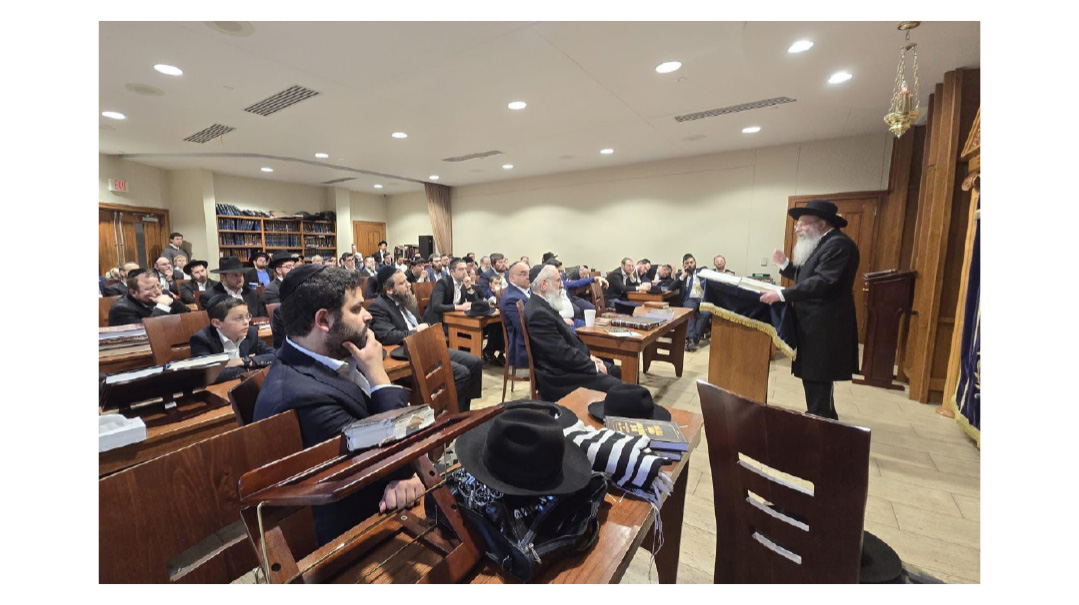
Last Sunday, the Dallas community united in a remarkable display of kavod haTorah, welcoming Rav Malkiel Kotler, rosh yeshivah of Beth Medrash Govoha. The occasion was a celebration of the kollel’s remarkable growth over the past few years, marked by the addition of multiple new families, including four families who settled in neighboring Plano, Texas.
A large crowd greeted Rav Malkiel at the airport and escorted him to the kollel, where he delivered a shiur on hilchos Chanukah to a packed beis medrash. As he stood at the shtender, his eyes swept across the audience. But before launching into his prepared shiur, he paused for a moment, and then shared an anecdote about his grandfather, Rav Aharon Kotler ztz”l.
“Sixty-five years ago, a menahel of a school in Texas came to the Zeide,” he said. “He asked the Zeide, ‘What should be our focus? That the talmidim should be shomrei Shabbos? That they shouldn’t marry out of the faith?’ ”
But Rav Aharon shook his head, objecting to both of those goals.
“The Zeide said, ‘Your focus should be that the talmidim should become Rav Akiva Eigers!’ ”
Rav Malkiel’s eyes remained fixed on the audience for another moment, and he gave a slight nod.
The Zeide was right.
Texas would yet be home to a generation of bnei Torah who would aspire to become the next Rav Akiva Eigers.
Overheard
“Today there is a popular song with the lyrics Hashem loves us, and everything will be fine, and even better, and even better. So we’re all fine with the words — this is what you want from Hashem. But what does Hashem want from us?
“Let’s see that you should always love Hashem — and that the love should increase from you to Him v’od yoter tov, v’od yoter tov — even more and even more.”
—Rav Shaul Alter
(Originally featured in Mishpacha, Issue 1043)
Oops! We could not locate your form.

